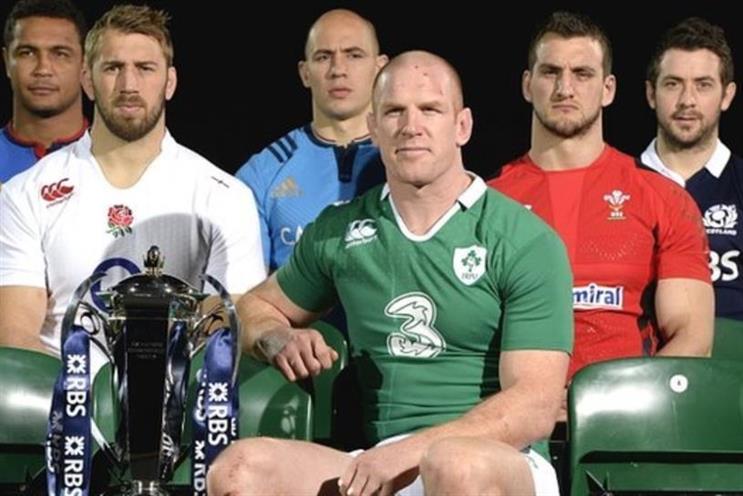
The rights, which have helped RBS reach millions of spectators and TV viewers each year since 2003, look set to bounce back around the open market for the first time since 2013.
It was then that strong interest from HSBC forced RBS to dramatically increase its renewal bid by 70% over its previous deal to £11m per year, covering the four tournaments from 2014 to 2017.
This was a record amount for the Six Nations, which has seen the value of the rights fluctuate. It fell as low as £5m per year when RBS renewed for the 2009 to 2012 period amid the global financial crisis.
However, experts believe that the popularity of rugby will give the rights sellers a strong platform for the next deal to surpass that £11m figure.
"That’s realistic," says Simon Rines, an analyst at the sponsorship information provider IMR Sports Marketing. It’s also described as "very likely" by Misha Sher, head of sport and entertainment at MediaCom.
Six Nations has plenty of time to drum up interest with 20 months to go before the next tournament when a new title sponsor can step in (RBS remains in place for 2017).
It may not be coincidence that RBS’ withdrawal became public so early, with Six Nations likely to have been keen to capitalise before memories fade of the Rugby World Cup, a quadrennial event, in England last autumn.
Ten headline sponsors and strong ticket sales helped World Rugby, the rights holders, to a 50% increase in the commercial value of the tournament over the 2011 event in New Zealand.
The headline sponsors were Heineken, Land Rover, Adidas, MasterCard, Societe Generale, DHL, Emirates, Coca-Cola, Canon, Toshiba and Fujitsu.
Some among that list may be tempted to add the Six Nations to that portfolio, but there are stumbling blocks, points out Rines.
For example, Heineken may baulk, not only because alcohol sponsorship is banned in France (one of the Six Nations) but because the deal that Guinness has as a second-tier sponsor may well block a competitor.
Global giants such as Adidas and MasterCard are likely to prefer global scale sporting events, while in contrast, Rines believes, Land Rover "might find the Six Nations title sponsorship is just a bit too big for them in terms of investment".
However, Rines does tip Emirates, or one of the other Gulf region carriers such as Etihad and Qatar Airways, as a contender.
For Sher, a technology brand is an interesting left-field prospect due to the trend for sporting events to increasingly make use of technology to boost and better serve their audiences.
It’s worth noting that Samsung jumped enthusiastically into rugby sponsorship at the World Cup with the School of Rugby property it established on top of its status as the England rugby team’s official consumer electronics and smartphone partner.
It's also possible another bank will take over from RBS, which itself took over from Lloyds TSB back in 2003.
"The big attraction for RBS was the corporate hospitality side of the Six Nations and not so much the boost to brand awareness as enhancing brand image among those already aware of the brand," says Rines.
"It’s fairly likely that the next sponsor will also be a bank or financial services company."

